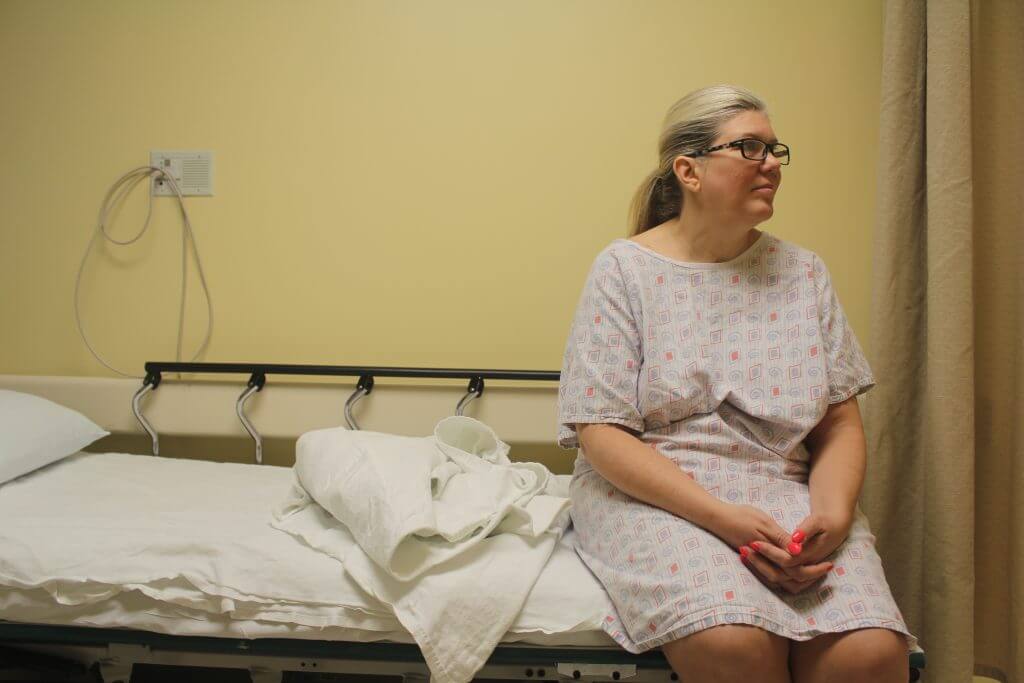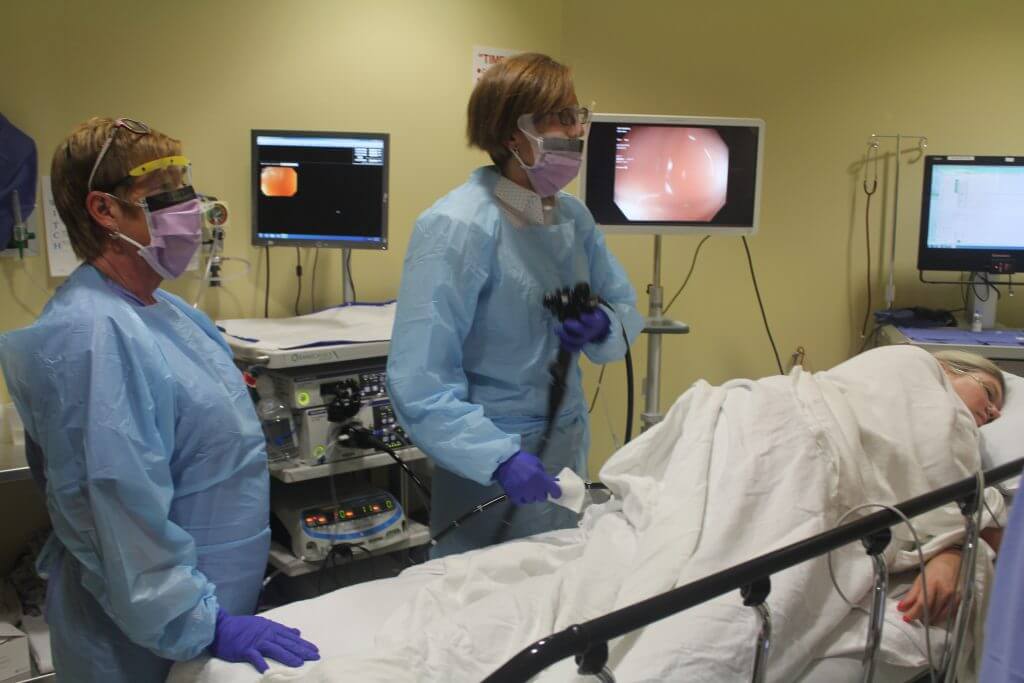Don’t Let Cancer Sneak Up On You
Assess your colon cancer risk now by completing Baptist Health’s Colon Cancer Health Risk Assessment.
While it is not something people look forward to, getting a colon cancer screening (colonoscopy) beginning at age 45 should be a priority. As we age, the risk of developing colon cancer grows dramatically. It is recommended that individuals with an average risk of colon cancer and no family history of the disease get a colon cancer screening age 45 and continuing until age 75.
When people talk about a colonoscopy, everyone mentions the prep as being the worst part. To encourage people to get a colon cancer screening and demystify the colonoscopy process, prep and procedure, Julie Garrison, shares her experience.
“I was getting ready to turn 50, and though I had no family history of colorectal cancer, I knew I needed to do this. I always try to do the recommended list of screenings to stay healthy,” says Julie.
During her annual physical exam, she discussed age-related recommended screenings with her physician. At the visit, her doctor completed an order for a colonoscopy with Sarah Landes, MD, Gastroenterology, at Baptist Health Louisville.

“Scheduling the procedure was easy. I was able to get on their schedule within a week,” says Julie. “I wanted to do the procedure on a Friday so I’d have the weekend to rest before going back to work. I began the prep on Thursday. It wasn’t that bad. I didn’t have cramping or any discomfort like I thought I would.”
She felt nervous about the prep because she had heard it is the worst part, but it wasn’t. “The prep is important because it allows your doctor to get a really clear picture. Definitely, don’t let it scare you away,” she said.
Not being able to eat solid food for 24 hours would make anyone nervous, but she was surprised by how full she felt eating Jell-O and chicken broth, along with drinking a lot of water to stay hydrated and help maintain a full feeling.

On the day of her procedure, she felt in good hands and confident in her doctor, the staff and nurses at Baptist Health. Once checked in, she was taken back to her room where nurses prepped her for the procedure. She had a visit from Dr. Landes, and all of her questions were answered. The colonoscopy itself went quickly.
“They took me back, and before I knew it I was back in my room feeling fine. Dr. Landes came in right away to tell me that everything looked good, and that there were no polyps,” says Julie. “I loved that she did this because it put my mind at ease.”
As an employee of Baptist Health, Julie is constantly reminded of the importance of early detection. Finding and removing a polyp before it turns cancerous is ideal, and removing a cancerous polyp that is at an early stage makes the disease more treatable.
“I’m glad that I had the colonoscopy—there’s no excuse not to. It really can save your life. Don’t be afraid of the prep. Honestly, it was less uncomfortable than what I thought it would be, and I was fine afterward. I won’t need to do this again for another 10 years,” says Julie.
If your family has a history of colon cancer, discuss when you should begin this very important screening with your doctor. If you’re 45 years of age or older, ask your doctor for a colonoscopy referral at your next annual physical. Other methods of colon cancer screening include fecal occult blood testing, sigmoidoscopy, and others. The risks and benefits of these screening methods vary, and can be reviewed with your doctor.
“I’m glad that I had the colonoscopy—there’s no excuse not to. It really can save your life. Don’t be afraid of the prep. Honestly, it was less uncomfortable than what I thought it would be, and I was fine afterward. I won’t need to do this again for another 10 years.”
Julie Garrison
Assess your colon cancer risk now by completing Baptist Health’s Colon Cancer Health Risk Assessment.